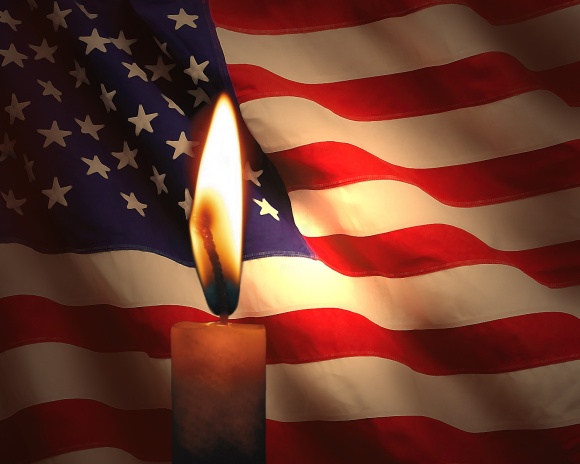 What is our role in America’s needed revival?
What is our role in America’s needed revival?
NEWS | Eric Reed
If renewal is a work of the Spirit, is there anything we can do beyond waiting for God to act in His providential timing?
Nearly 400 pastors and leaders who met in Atlanta this month certainly hope so.
“God is up to something special in America,” said Arkansas pastor Ronnie Floyd, organizer of the two-day prayer gathering and another similar meeting last fall in Dallas.
“We had a fabulous response to our Dallas prayer gathering,” Floyd said before the Atlanta meeting. “We did not have any plans to do another gathering, but wanted only what God wanted…. After listening, prayer and discussion, we determined that God wanted us to open it up to all Southern Baptist senior pastors and God-called ministers.”
Twice as many pastors attended the Atlanta gathering. The prayer meetings raise a question: What can believers do to bring spiritual awakening to a nation lulled to disinterest by its tolerance of sin?
“We are the revival generation,” Floyd posted on his blog after the Atlanta meeting.
“We must reach this world for Jesus Christ. The hour is critical. The time is short. This is why we need to practice extraordinary prayer.”
Or, as one pastor asserted at the Dallas gathering, “God, I’m not going to let go of You until You burst from the heavens and come down.”
What woke Great-Grandpa
“Generally, the people of God were going about life and ministry with a business-as-usual attitude,” Phil Miglioratti, IBSA’s prayer consultant and leader of the National Pastors’ Prayer Network says of the periods just before the Great Awakenings.
“They were either satisfied with the current situation of cultural decline or lacking in faith for the church to have an impact on the country.”
But God moved back then.
What historians generally call the First Great Awakening started in the 1730s when the stern preaching of Jonathan Edwards and George Whitefield, in a ritualistic period of churchmanship, stirred in their hearers a desire for a more personal faith.
Another wave started in the early 1800s and set the stage for sweeping revivalism across the U.S. both before and after the Civil War. That awakening moved from New England, across what was then the upper Midwest, and after the war down into Kentucky and Tennessee.
“In both the First and Second awakenings, the church needed a revival of prayer,” Miglioratti said. “The Holy Spirit responded with a rhythm of praying in the First awakening, at first with individuals, then congregations, and then regional prayer movements. In the Second, it was an outside-the-box movement of noon-time prayer meetings that spread west from New York City across the country.”
The pattern Miglioratti identified started with individual repentance, but often spread quickly. It began with prayer and proclamation of the word. And the awakenings came ahead of times of national testing: the American Revolution, the Civil War.
God was preparing his people.
In recent years, the pattern of awakenings has included spontaneous prayer meetings on college campuses, where run-of-the-mill chapel services turned into days-long sessions of personal confession. Wheaton College experienced such a revival in 1995, at the same time campus revivals broke out in Texas, with students praying non-stop for several days. But there is a difference between protracted personal chest-beating and intercession on behalf of a wayward nation pleading for the salvation of millions of lost souls.
“For some time, God has been burdening my heart about prayer and spiritual awakening,” Frank Page wrote when he called the denomination to prayer in 2013. “I talked about this a great deal when I was president of the Southern Baptist Convention (2006-08)…. That deep sense of need for revival in our land has only gotten stronger over these past six years,” said Page, now president of the SBC Executive Committee.
“If we do not have God’s reviving hand upon us, we will move into a precipitous decline from which we will never recover,” Page said.
Beyond personal confession and pleading for the nation, some theologians say believers can’t just sit back and hope God moves. Action is required, specifically, bringing the body of Christ together in unity.
“I was recently involved in a prayer gathering, entreating the Lord for spiritual awakening and revival in our nation,” said Roger Oldham, executive editor of SBC Life, published by the denomination’s executive committee. “As we prayed, person after person lamented the apparent lack of love for the brethren within Christian circles… We don’t stand our ground in defending one another, especially when a fellow believer takes a strong stand on a crucial issue.”
Oldham is not alone in that opinion. Leaders in several denominations have called on evangelicals to come together to pray for revival – and to take stands on issues vital to America’s spiritual renewal.
So, the pattern emerges: prayer for renewal begins with the individual believer, then moves to the church as prayer for revival, and ultimately becomes prayer for national awakening.
“‘Start with me, Lord’ must be our personal call for real conviction and cleansing,” said Miglioratti, “and we do not need to wait for a leader to schedule a Solemn Assembly to pray that prayer. Then pray for your congregation to be called into times of honest reflection and Holy Spirit-sourced repentance, with witnessing and evangelization as the fruit of an authentic restoration of Christ as Head of the Church.”
Or, as one pastor in Dallas prayed: “Lord, I don’t want to do [ministry] if You don’t come down in power….Lord, it’s one thing to read about it; we want to experience revival.”






















